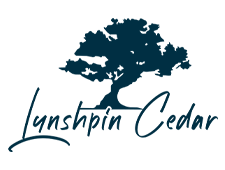AWCA INVESTMENT HOLDINGS: Accelerating Economic Empowerment for Women
African Women Chartered Accountants (AWCA) proudly supports the entry of young women into the historically almost impenetrable chartered accountancy (CA) profession. Having overcome exactly the struggles with which AWCA exists to assist, inspirational Founder, Sindi Mabaso-Koyana talks us through some of what makes the organisation so special and valuable to aspirational women who are mentored and supported throughout their journey of becoming CA and even beyond. To ensure the long-term sustainability of what AWCA does, a commercial arm of AWCA was formed and AWCA Investment Holdings (AIH) was birthed. The success of AIH paves the way for more and more women to participate in the economy.
Established in 2008, AWCA Investment Holdings (AIH) is unique: a 100% black women owned and managed investment company. Operating as a holding company investing in companies across South Africa, a wealth of financial skills and strong business networks allows AIH to unlock deal flow and closely work with a financial services, industrials, mining, and logistics investment portfolio.
“AIH shareholders are predominantly black female chartered accountants,” the company outlines, “and the ultimate aim is to unlock and create stakeholder value for the empowerment of previously disadvantaged women in South Africa.”
ACCELERATING CHANGE
Historically, the accounting profession has been slow to keep pace with the transformation witnessed across industry in recent years and decades. The first female Chartered Accountant (CA) qualified in 1917, and it took another 70 years for the profession to welcome its first black female CA in 1987.
When AWCA was launched 17 years ago, African, Indian and Coloured (AIC) female CAs numbered just 407 of a total population of 20,903 – only 2%. The sustained efforts from various stakeholders has seen the much-needed transformation gain momentum, and as of June 2019 AIC female numbers represented 15% of the total.
“AWCA is a forum committed to accelerating the advancement of qualified and aspiring Black Women Chartered Accountants,” the organisation summarises, “through the provision of active support, personal development and access to opportunities.”
Its commercial arm, AIH, is made up of 53 black women shareholders, among them many chartered accountants and captains of industry with competences across a range of sectors and provinces. At its helm as Group Chairperson is Sindi Mabaso-Koyana, herself a CA by trade with a passion for transformation and governance in the workplace.
An illustrious career has seen Mabaso-Koyana appointed as Managing Director of Viamax Logistics, Group CFO of Transnet, Executive Partner at Ernst & Young, and serve on a litany of boards including Transnet, South African Institute of Chartered Accountants, MTN and Toyota.
“I have always been positive about Africa’s economic prospects and I never hesitate to play the role of evangelist for entrepreneurship,” she explains. “I love investing in people and mentoring the generation to follow.”
The principle of skills development and the accelerated advancement of African Women CAs in South Africa was a central premise on which AWCA was founded, directly reflected in AIH’s own vision. “The ethos of our business is to ensure that we empower not just ourselves as shareholders, but also cause that economic impact to reach other women,” she explains.
“When we first came together in 2002 it was as a non-profit organisation, having observed the challenges associated with building and growing the number of black women CAs in the country. In 2008 we then formed the commercial arm which became AWCA Investment Holdings, and ever since we have been operating as a BEE women’s grouping.”
PRIVATE EQUITY SUCCESS
“One challenge we have encountered,” Mabaso-Koyana shares, “is that to access deals competitively it is essential to have a pot of money readily available. Most of the time we are required to provide a contribution, perhaps 10% – known as ‘skin in the game’. That portion in a deal of, say, R100 million, is not readily available to us, given that most of us do not have generational wealth and have been professionals most of our lives investing in our homes and education for our extended families. So, we have been able to build wealth that allows you to write the cheque of R10m with ease. It grew to become an important factor in our being a relevant and respected women investment company to have funds available to invest in a rich pipeline we are exposed to.
“We are very excited to have just launched our private equity (PE) fund in response,” Mabaso-Koyana unveils. The resultant AIH Capital, fund manager of AIH Fund I, is a generalist private equity fund, the principal investment objective of which is to make equity-related investments in companies that are primarily mid-sized and privately held.
“Our private equity is unique,” Mabaso-Koyana continues. “Usually individuals must be principals, whereas our funders have allowed an organisation to also be a majority shareholder, in this case AIH, in the PE structure. We are trailblazers in that in that our private equity has a company with 53 other shareholders set to benefit from the fund.
“We are proud of this as it allows us to continue with our broad-based approach to our model. Not only will the 53 women in AIH benefit, but also AWCA, the non-profit, as a 10% beneficiary of AIH.
“AIH Capital will be a key catalyst for increasing the participation of women in the economy, through leveraging their competitive advantage of a unique combination of demonstrated strength and depth and breadth of skills in investments, governance and financial management.”
ROLE MODELS
“It is important that we invest in businesses with excellent management, among the best in their industry. We look for well-respected, medium-sized companies that can compete with the major players, which are well run and boast good business practices. Reputation, values and culture are also key, as we only want to associate ourselves with exemplary businesses with spotless track records,” Mabaso-Koyana further outlines of AIH’s approach.
Inspiring at every turn, there are numerous programmes and initiatives within AWCA geared toward strong mentoring and leadership priorities, Mabaso-Koyana relays.
“A lot of what we do in AWCA surrounds creating awareness for young women. When we started in 2002, there was still a lot of work to be done to bring the idea of forging a career to the forefront of the thinking of young girls in the townships. This was not an attainable career for them 20 years ago, and so having qualified ourselves as chartered accountants it was then up to us to act as the role models for what was, and now is, possible.
“Once we have mentored and trained aspiring CAs, we also have leadership programmes to engender success in specific roles and business acumen,” Mabaso-Koyana highlights of a central tenet of AIH’s commitment to giving back. “Skills development is central to the ethos of AWCA, and we are proud as AIH that the one distribution that we have made is to AWCA, in the form of bolstering their bursary fund.”
Since its establishment in 2005 the AWCA bursary programme has assisted 124 aspiring accountants to attend university where this would otherwise have been unattainable. “All bursary students are given access to AWCA mentorship, roundtable and celebrate success initiatives,” the organisation explains. “They receive turning and guidance where needed, so as to endure their academic progress, as well as to build and strengthen their leadership and other skills.”
THE UNTRODDEN PATH
Mabaso-Koyana knows well the value of effective support and tutelage, and how transformative this can be in unlocking potential and attaining the previously unattainable. “I was very fortunate to be a founder of AWCA alongside three of my colleagues Zodwa Manase, Sindi Zilwa and Tshidi Mokgabudi. Having grown up in the township of Durban where we had no guidance on what grades and subjects would secure our futures, sometimes even discouraged from aiming too high. When starting AWCA, I therefore felt it key to role model ourselves to those young women in rural and township areas.
“Having grown up in difficult circumstances, I knew I would have to give back to the whole community which brought me up alongside my family. Everybody looked out for us and this whole culture of discipline, care and support really contributed to what I ended up becoming. I also know the significance of financial assistance, which meant that I was able to pursue my studies and become a chartered accountant.”
The gratitude she felt later heavily shaped Mabaso-Koyana’s career path, she recounts. “It is for this reason that I have spent most of my career in the public sector,” she says. “I really appreciated the fact that, without our government bringing in the new era of democracy, a number of us would have been unable to pursue the careers we ended up following.
“It was thus natural for me to have moved to form this broad-based investment company. Even when we launched our PE I insisted upon a broad base, which is so unusual.” It is however typical of an ethos and philosophy which has already inspired so many to strive to fulfil their aspirations, whatever the setback, and will do for so many more young women to come.
“I generally do things my own way, as long as I know I am doing the right thing,” Mabaso-Koyana concludes. “I’ve always had this compulsion to take the least easy option available – my ethos has always been to take the unchartered path. We want to develop women to be the best that they can be, and are sticklers for ethics and excellence in everything that we do and proud to stand for these principals.
“I always say to the team: you need to make sure that you have developed and grown beyond your own imaginable dreams when you look back at how AIH has touched your lives.”


